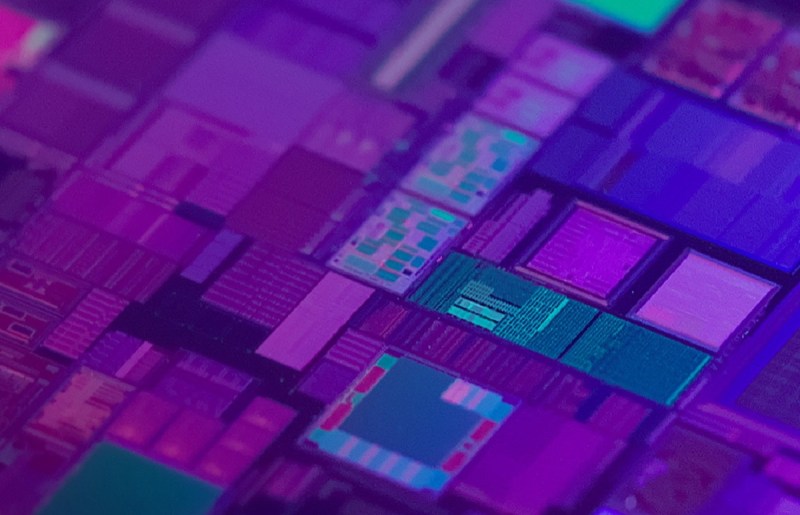Intel sells stake in IMS Nanofabrication to TSMC for $430M
5 min read
Head over to our on-demand library to view sessions from VB Transform 2023. Register Here
Intel has agreed to sell a 10% stake in IMS Nanofabrication to TSMC for $430 million at a valuation of $4.3 billion.
Intel will retain majority ownership of IMS, which will continue to operate as a standalone subsidiary under the leadership of CEO Elmar Platzgummer. The transaction is expected to close in the fourth quarter of 2023.
The deal comes just weeks after Intel agreed to sell 20% of its stake in IMS Nanofabrication to Bain Capital for $860 million, at the same $4.3 billion valuation.
Intel’s previous deal to sell IMS Nanofabrication GmbH (IMS) to Bain Capital Special Situations is expected to close in the third quarter of 2023. IMS, a Vienna-based company, will continue to operate as a standalone subsidiary under the leadership of Platzgummer.
Event
VB Transform 2023 On-Demand
Did you miss a session from VB Transform 2023? Register to access the on-demand library for all of our featured sessions.
The company plays an important role in chip manufacturing. IMS has been a prominent player in multi-beam mask writing for advanced technology nodes since inventing multi e-beam technology and introducing the first commercial multi-beam mask writer in 2015. Masks are the templates used to manufacture semiconductor chips with the finest details of electronic circuitry.
In an interview with VentureBeat, Platzgummer said IMS plays a critical role in enabling the growth and advancement of the semiconductor industry in an era of ever more demanding applications. Global semiconductor demand continues to grow fueled by five superpowers: AI, pervasive connectivity, ubiquitous computing, cloud-to-edge infrastructure and sensing. The market is expected to reach $1 trillion by 2030.
Kevin Zhang, senior vice president of business development at TSMC, said in a statement, “TSMC has been working with IMS since 2012 on the development of multi-beam mask writers for advanced technology nodes. This investment continues the long-term partnership between TSMC and IMS to accelerate innovation and enable deeper cross-industry collaboration.”

Intel initially invested in IMS in 2009 and acquired the business in 2015. Under Intel’s ownership, IMS experienced substantial growth, quadrupling its workforce and production capacity while delivering three additional product generations.
Matt Poirier, senior vice president of corporate development at Intel, said in a statement, “This investment
demonstrates the deep industry collaboration IMS is pioneering to advance critical lithography technology for leading-edge nodes, which will benefit the entire semiconductor manufacturing ecosystem. With enhanced independence, IMS will be well positioned to address the significant growth
opportunity for multi-beam mask writing tools over the next decade and beyond.”
As extreme ultraviolet lithography (EUV) technology becomes more prevalent in leading-edge semiconductor manufacturing, the demand for multi-beam mask writing tools, crucial components in creating advanced EUV masks, is increasing.
A key enabler of this growth is advances in lithography technology, such as EUV, which is essential for the leading-edge nodes that enable these demanding applications. These lithographic advances rely on sophisticated mask writing tools, which makes IMS’ leadership technology central to innovation across the ecosystem. It’s like creating a sharper and sharper pencil to write thinner lines for the circuitry as chip makers and designers jam more and more detail into the same-size chips.
Like the Bain deal, this investment positions IMS to capitalize on the significant market opportunity for multi-beam mask writing tools by driving innovation and fostering cross-industry collaboration. It also keeps the industry on the path of Moore’s Law, which predicts that the chip industry will double the number of transistors in a chip every couple of years.
“We’re going to remain the majority owner and IMS will continue to have the business operate as a standalone subsidiary under the leadership of the CEO, Dr. Platzgummer, and the transaction is expected to close in the fourth quarter of this year 2023. And we think that ultimately, the Bain and TSMC investments provide IMS with increased independence and reinforce confidence and a significant opportunity ahead for the company,” Poirier said in an interview with VentureBeat. “And the additional autonomy we think will help IMS accelerate its growth and drive the next phase of lithography technology innovation to enable the industry’s transition into new patterning systems, such as high numerical aperture, what we call high NA and EUV. And the investment by TSMC demonstrates, we think, the excitement across the semiconductor manufacturing ecosystem for the significant opportunity ahead for IMS, and certainly recognize the benefits of deeper industry collaboration for the ecosystem as a whole.”
Platzgummer believes the potential of IMS as EUV technology becomes more pervasive and high-NA EUV moves into high-volume manufacturing in the coming years.
Together, Bain Capital and TSMC’s investments provide IMS with increased independence and reinforce
confidence in the significant opportunity ahead of IMS. This added autonomy will help IMS accelerate its
growth and drive the next phase of lithography technology innovation to enable the industry’s transition
into new patterning systems, such as high-numerical-aperture (high-NA) EUV.
Platzgummer said in a statement, “We are delighted to bring in new investors to help us build on IMS’ leadership in multi-beam mask writing, which is the backbone of innovation in leading-edge semiconductor technologies. This is a testament to IMS’ expertise and leadership position in this integral technology. Together with our partners, we look forward to continuing to support innovation of next-generation technologies and deliver value across the semiconductor ecosystem.”
The sale of the stake in IMS Nanofabrication marks a significant move for Intel as it focuses on strategic partnerships and investments to drive growth and value creation in the rapidly evolving semiconductor landscape.
“We are established in the leader in the so called multi-beam mask-making equipment,” Platzgummer said in an interview. “This kind of equipment is required to develop advanced extreme lithography, so called EUV. Another generation is coming.”
And that generation requires the equipment that IMS makes.
As for supply chain security, Poirier said that the company already has a set of customers that are global in nature already, and a key customer in TSMC is joining Intel in the ownership ranks. He noted IMS is a critical supplier to TSMC and the companies are strategically aligned. The ecosystem as a whole will benefit, he said.
“It’s very positive to have TSMC closer at IMS,” said Platzgummer. “This will strengthen our position and also our growth in the future.”
VentureBeat’s mission is to be a digital town square for technical decision-makers to gain knowledge about transformative enterprise technology and transact. Discover our Briefings.


